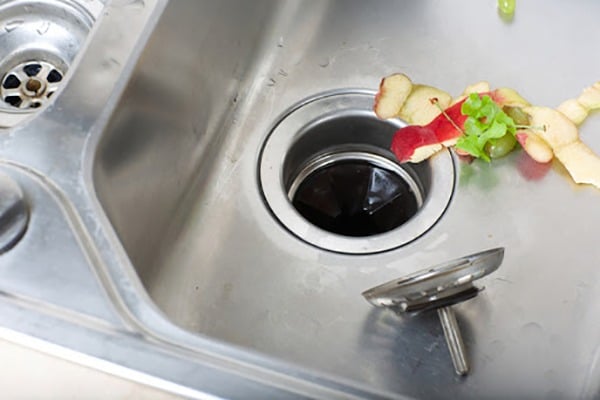What Can & Can't Go in Your Garbage Disposal?

It can be confusing to know what you can and can't put into the garbage disposal. We're here to provide you with info to make sure you're grinding food safely.


It can be confusing to know what you can and can't put into the garbage disposal. We're here to provide you with info to make sure you're grinding food safely.
A food disposal sink is a must-have for every homeowner. It's a powerful kitchen tool that makes it easy to clean up after meals and helps keep food scraps from getting into your plumbing pipes or landfills. We often don’t think about this modern convenience until an issue occurs, like your disposal not grinding.
Though garbage disposals have awesome horsepower and sharp blades, certain foods and debris just can’t be processed. Knowing the garbage disposal dos and don'ts goes a long way in keeping your appliance from getting clogged or breaking.
Proper use and maintenance can make your garbage disposal last longer and keep it running smoothly. Here are some tips on how to use a garbage disposal and what food scraps can be processed.
What Not to Put in a Garbage Disposal

Are you wondering what to do with your non-friendly disposal items? Try composting some of your food scraps to reduce waste and help your garden thrive.
Learn more about how an AHS home warranty can cover your garbage disposal.

What Can You Put Down a Garbage Disposal?
For proper garbage disposal maintenance, you should also always run cold water through your food disposal appliance while it is in use and for 30 seconds after it has finished grinding food. This helps ensure that all food bits wash down the drain and none remain in your disposal.
No matter how careful you are, all appliances eventually succumb to wear and tear. That’s where we come in. A home warranty from American Home Shield® can help cover the cost of repairing or replacing the major parts of your home systems and appliances when they break down. We specifically offer a garbage disposal warranty so that your hardworking appliance is working again in no time. Explore our warranty costs and warranty plans today and choose the best one for your household and your budget.
AHS assumes no responsibility, and specifically disclaims all liability, for your use of any and all information contained herein.
Have a plan for your home when things don't go according to plan
Shop Home Warranties